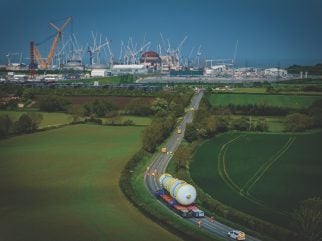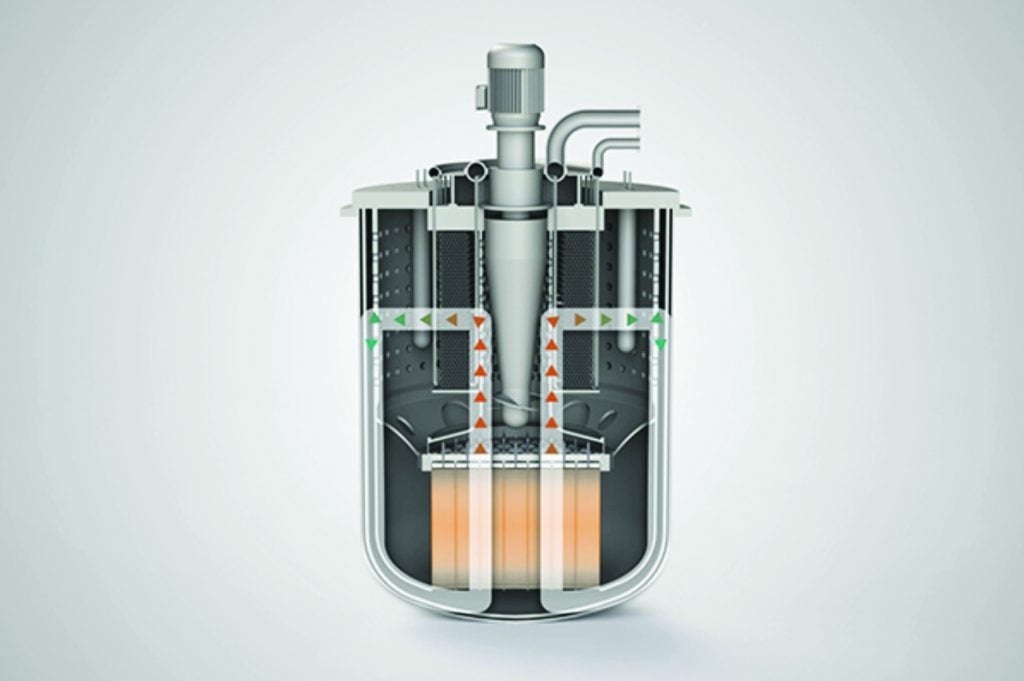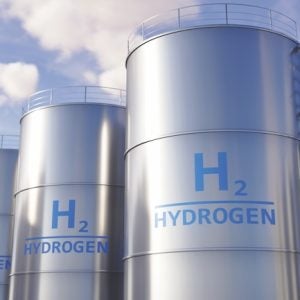
It’s been said that we’re living in a ‘nuclear energy renaissance’ as governments around the world have opened their arms to new nuclear, recognising it as a vital contributor to future clean energy mixes. Certainly, in the markets in which we operate, we’ve been buoyed by supportive signals from governments towards new nuclear, particularly small and advanced modular reactors.
Now that support for these next-generation reactors has been established, attention must turn to getting projects off the ground, and this is, in large part, a question of financing. Revamping energy systems to make way for cleaner technologies is not a small job, nor is it cheap. We are talking about increasing electricity generation to meet higher demand as we electrify transport and homes, as well as decarbonising carbon-intensive industries like cement and steel production. It is an enormous endeavour, but also an urgent one.
The UK has pledged to reach net zero by 2050, while the EU has adopted a 55% net greenhouse gas reduction target by 2030 (compared to 1990 levels). Our energy systems will need to undergo a seismic change to reach these targets – and that necessitates significant investment into the energy and infrastructure sectors and their supply chains, and fast. But with seismic change comes significant opportunity – the ongoing energy transition is poised to support millions of jobs across Europe and indeed globally; new and fast-growing industries including nuclear will boost economies; and by investing in homegrown clean energy, countries will ensure security of energy supply, protecting them against any shocks to the global market.
When it comes to new nuclear projects, both private investment and public funding will be vital to increase the speed of delivery and the variety of projects being delivered. Small and advanced modular reactors are undoubtedly an attractive investment opportunity. They are smaller and simpler than conventional large-scale nuclear plants so require less capital to build, while their simplicity makes them easier to operate and maintain in the long-term, keeping costs low across the full lifecycle. The reactors will be built using modern modular construction methods, thereby expediting project timelines, which means investors will have less time to wait until they get a return on investment. The design and delivery approach can be easily replicated using a tried and tested supply chain – in comparison with large-scale nuclear plants, where the design might vary based on factors such as the specific site and regulatory environment – and this will lead to more accurate budget and timeline projections and reduce the risk of overruns.

What’s more, new nuclear projects will not only supply abundant, clean, and dispatchable power to national grids, they will also play an instrumental role in decarbonising heavy industry. Sectors including oil refining, petrochemicals and steel production require constant, baseload supplies of energy, and in huge volumes. While these sectors have traditionally run on fossil fuels, they urgently need to decarbonise. And nuclear is one of the only technologies that can provide a dedicated supply of reliable, clean, and abundant power.
Small and advanced modular reactors can be built next to the industrial sites they supply. This is a huge selling point in comparison to other clean energy technologies; renewables such as wind and solar are intermittent and land intensive whereas hydrogen, which has great potential as an energy vector, is not in itself an energy source. Use of nuclear for embedded generation also reduces the issues associated with grid connection, both from a capacity and timescale perspective.
So, heavy industry needs to decarbonise and nuclear is the obvious solution. Private funding has a huge role to play in financing the development of these next-generation reactors. That said, governments need to lead by example when it comes to the energy transition. If we take the UK as an example – the Government has set an ambition to deploy up to 24 GW of civil nuclear power by 2050, reduce industrial emissions by at least two-thirds by 2035 and at least 90% by 2050. It is right that public funding plays a role in accelerating energy transition projects to help us meet these targets.
There are, of course, drawbacks to publicly funded projects. Generally speaking, they are slower to get going and more likely to face stop-start delays due to spending reviews and changing political agendas.
Governments can, however, help widen the pool of investment even further by signalling their early support to nuclear developers, giving private investors the long-term confidence they need to fund the nuclear development process; this might take the form of conditional contracts or a sponsorship mechanism. And certainly, in the UK, the lack of such a mechanism is holding back progress. Here, developers (and investors) are currently required to undergo the entire development period at great expense without knowing if their project will even be approved – through years of site investigation, public consultation, regulatory scrutiny of their design, environmental impact assessments and more. It is an enormous gamble and a significant deterrent for private investors. If the Government were to signal its financial and regulatory support to developers much earlier in the process, it would boost investor confidence and allow the industry to make significant headway.
Put simply, the Government needs to move from a situation where it is announcing relatively small investments of public money to, instead, announcing billions of pounds of private money, all achieved by simply creating an enabling and supportive environment in which investment can be made with early confidence.
The good news is there is a great deal of interest in investing in new nuclear. At newcleo, for example, €400m of seed funding was raised within two years of launching and last year the company opened a capital raise of up to €1bn. The nuclear sector is undoubtedly on the right trajectory – we now just need the right conditions in place to enable privately-funded projects to thrive alongside public sector led projects in order to maximise the enormous potential of this clean energy source.
Author: Andrew Murdoch, UK Operations Managing Director, newcleo






